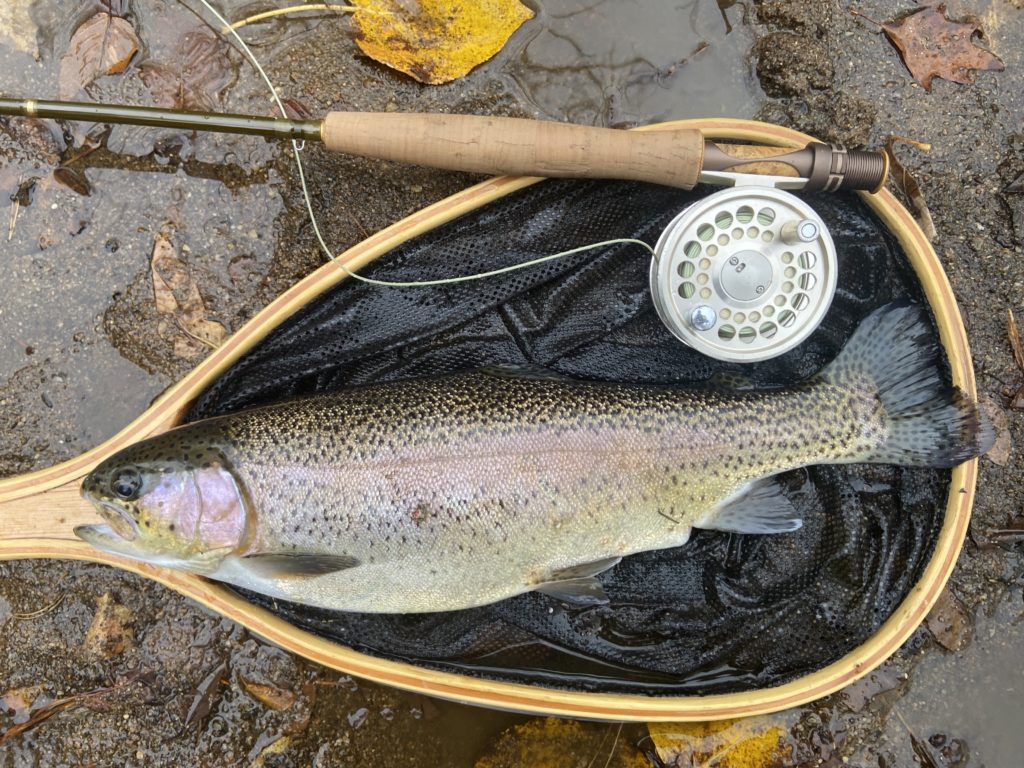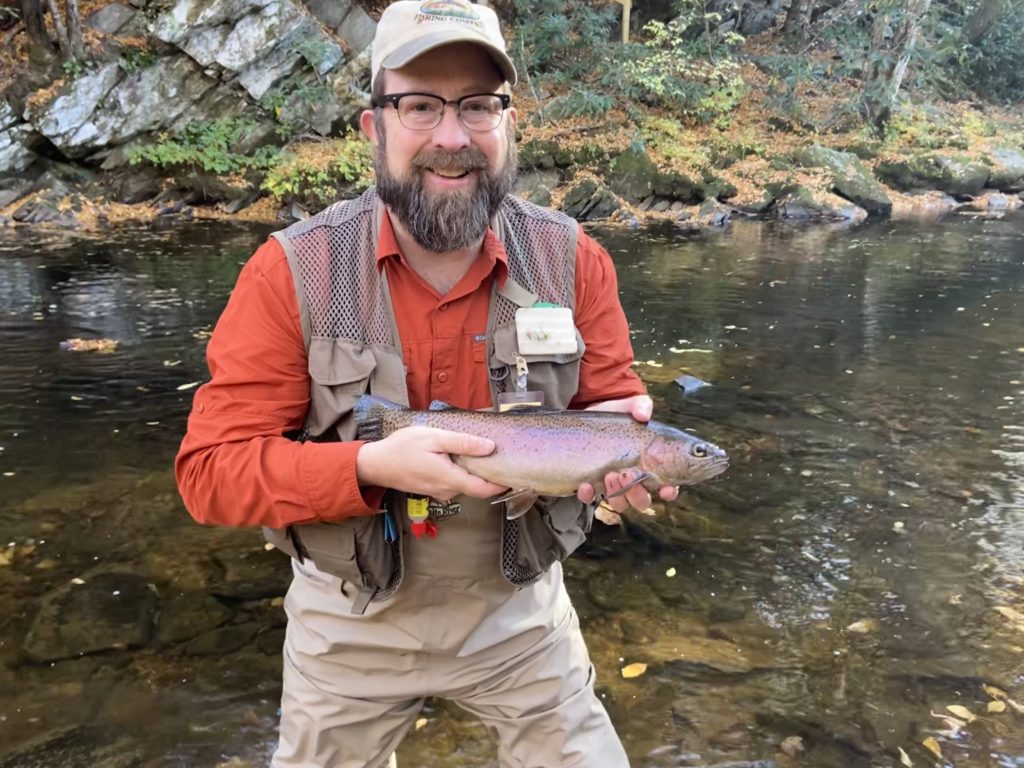By the Very Rev. Chris Findley
Rector, St. Patrick’s Anglican Church
Dean, Nashville Deanery (ADOTS)
Our family recently took a much needed vacation in the mountains of western North Carolina. We’ve been vacationing there for over two decades now, so it’s familiar territory. The foliage around Linville and Grandfather mountain (where we were) was at its peak with bright reds, yellows, and oranges. But if you know me, you know how much I looked forward to fly fishing for trout.
There are a lot of reasons I like fly fishing. It’s the process–the way you fish. It’s the gear. It’s being knee deep in the clear water of the stream. And of course, it’s the trout themselves.
In the movie, “A River Runs Through It” fly fishing figures prominently. Tom Skerritt plays a Presbyterian Pastor who taught his boys to fish. Norman, the younger brother and the narrator of the movie, says that his father, “told us about Christ’s disciples being fishermen, and we were left to assume, as my brother and I did, that all first-class fishermen on the Sea of Galilee were fly fishermen and that John, the favorite, was a dry-fly fishermen.”
As I fished in North Carolina, I thought a lot about the Church and about Jesus’ promise to the first disciples, ““Follow me, and I will make you fishers of men.” (Matthew 4:19). As followers of Jesus, this is our calling as well. But there’s a tendency in our modern church to think that building a nicer boat will bring fish in. Sometimes we get so caught up in maintaining the boat that we forget to fish. Or we get caught up in meeting the needs of the fishermen that we forget to fish. Of course, I realize the apostles weren’t fly fishermen, but I think using it as an analogy is instructive and we can learn a few things from that imagery:
1.) Jesus gave us one primary job, to be “fishers of men”. It is to draw men, women, and children into relationship with him. We can and should do a number of other things as a healthy church, but every other task is subordinate to that one. And you don’t just accidentally end up at the stream in your waders with an elk-hair caddis on the end of your line. Fishing is an intentional act and we need to be intentional about fishing for people.
2.) Fly-Fishing Involves LOTS of casting. You cast more than you catch. But the more you cast, the more you catch. We cannot become discouraged because our casts don’t always bring in the fish we had hoped. You and I have to keep casting. The more you cast, the better you become at it. The better you learn to read the water. The better you understand the stream and the fish, the more success you have.
3.) One catch makes it all worth it. Whenever a fish strikes and you feel that pull on the line, everything becomes worth it. You forget how long you have been standing there, how far you may have walked, or how tired you may be. You’ve got a fish! Likewise when we fish for people, when you see God move in their lives and draw them to himself, all the effort becomes worth it. Heaven itself celebrates with us. In Luke 15:7, Jesus tells us, “I tell you, there will be more joy in heaven over one sinner who repents than over ninety-nine righteous persons who need no repentance.”
So I’d encourage you to embrace the call to be “fishers of men”. Just begin simply. First, pray, by name, for the people you know who are not Christians. Pray the Lord would open their hearts and minds to His Gospel. Secondly, Pray for opportunities to speak with people or to invite them to church. Most people’s first interaction with the Gospel is simply because someone says, as Phillip said to Nathaniel in John 1:46 , “Come and see.” That’s all you need to say. And thirdly, trust that the One who calls you to fish is also your guide. He knows the stream. He knows the fish. He knows what’s needed. Trust him to help you.
Let’s fish!
(and if you were wondering, Fr. Chris did catch the fish in the photos below!)


